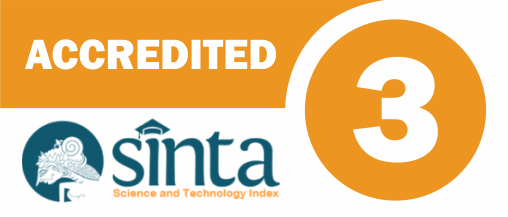Application of Evidence-Based Nursing Practice: Shaker Exercise for Swallowing Ability in Stroke Patients with Dysphagia
Penerapan Praktik Keperawatan Berbasis Bukti: Latihan Shaker untuk Kemampuan Menelan pada Pasien Stroke dengan Disfagia
Abstract
Background: Stroke is one of the leading causes of disability and mortality worldwide, with more than 13 million new cases recorded annually. Stroke can lead to various complications, including dysphagia, which disrupts the patient's swallowing ability. One therapy that can assist stroke patients with dysphagia is the Shaker Exercise.
Objectives: This study aims to provide an overview of the impact of implementing Shaker Exercise on swallowing ability in stroke patients experiencing dysphagia through Evidence-Based Nursing Practice (EBNP).
Methods: The study used a systematic approach by reviewing various articles and literature from seven prominent health databases, including ProQuest, PubMed, and ScienceDirect. Selected articles focused on Shaker Exercise interventions for stroke patients with dysphagia.
Results: The review identified one article in the form of a Systematic Review Meta-Analysis, which examined 37 studies involving a total of 2,656 participants. The analysis results demonstrated that the Shaker Exercise is effective in strengthening suprahyoid muscles, reducing aspiration frequency, and improving swallowing ability in stroke patients with dysphagia.
Conclusion: The implementation of Shaker Exercise therapy for stroke patients with dysphagia shows significant results in enhancing swallowing ability and reducing aspiration complications. This therapy aligns with evidence-based nursing principles, supporting the improvement of patients' quality of life through scientifically proven interventions.
Copyright (c) 2024 M. Khalid Fredy Saputra, Rizki Nugraha Agung, Ninik Yunitri, Wati Jumaiyah, MG Enny Mulyatsih

This work is licensed under a Creative Commons Attribution-ShareAlike 4.0 International License.






















